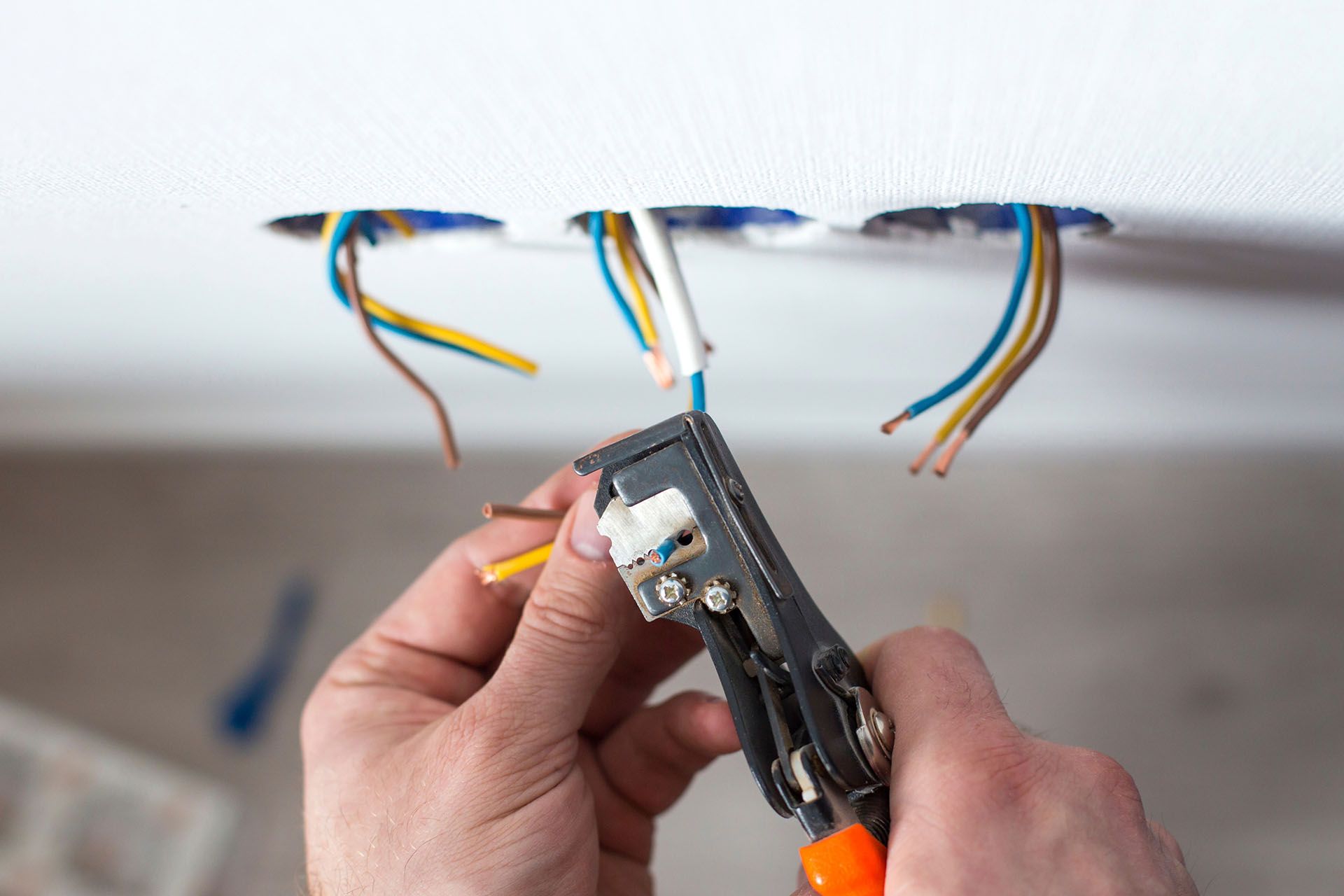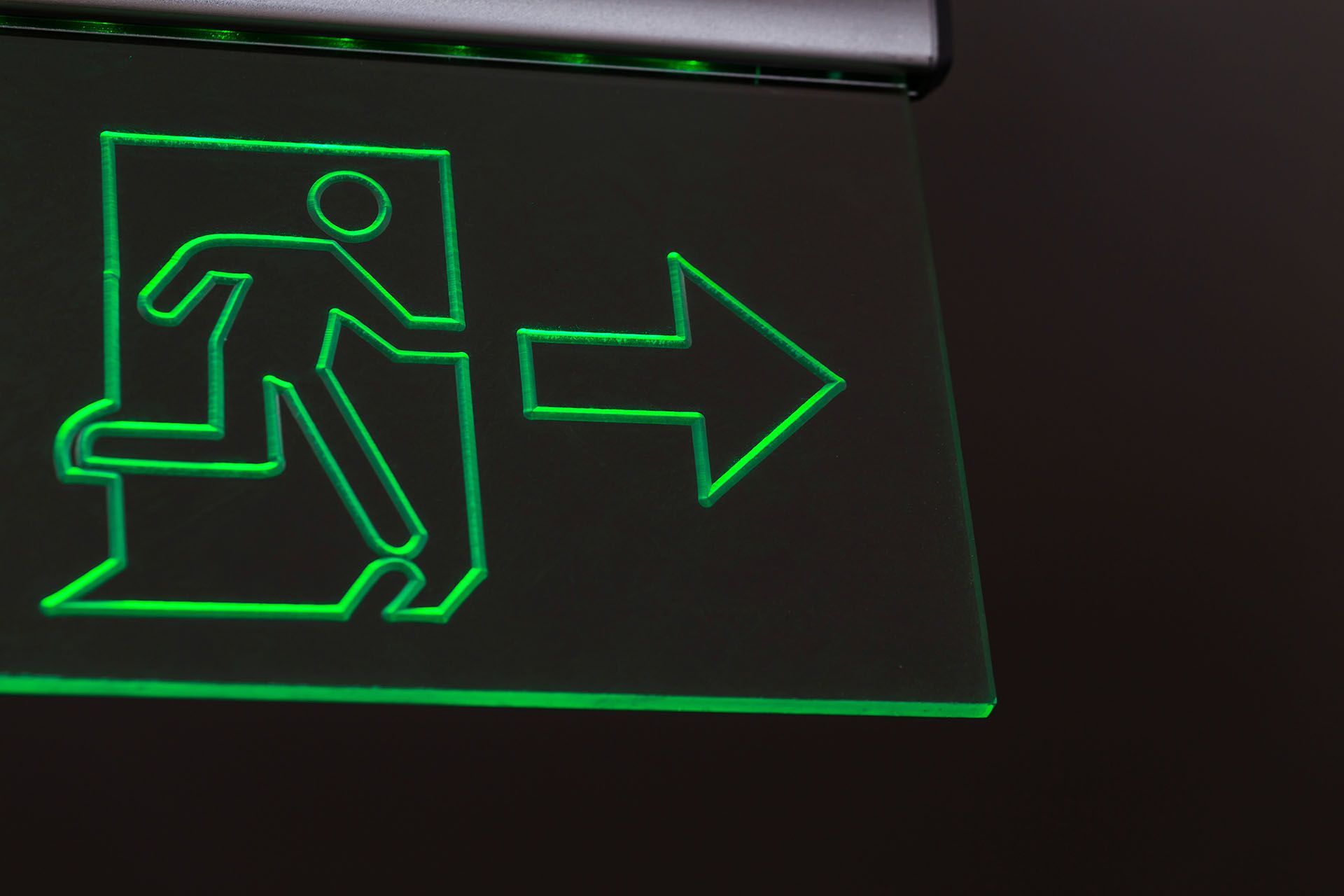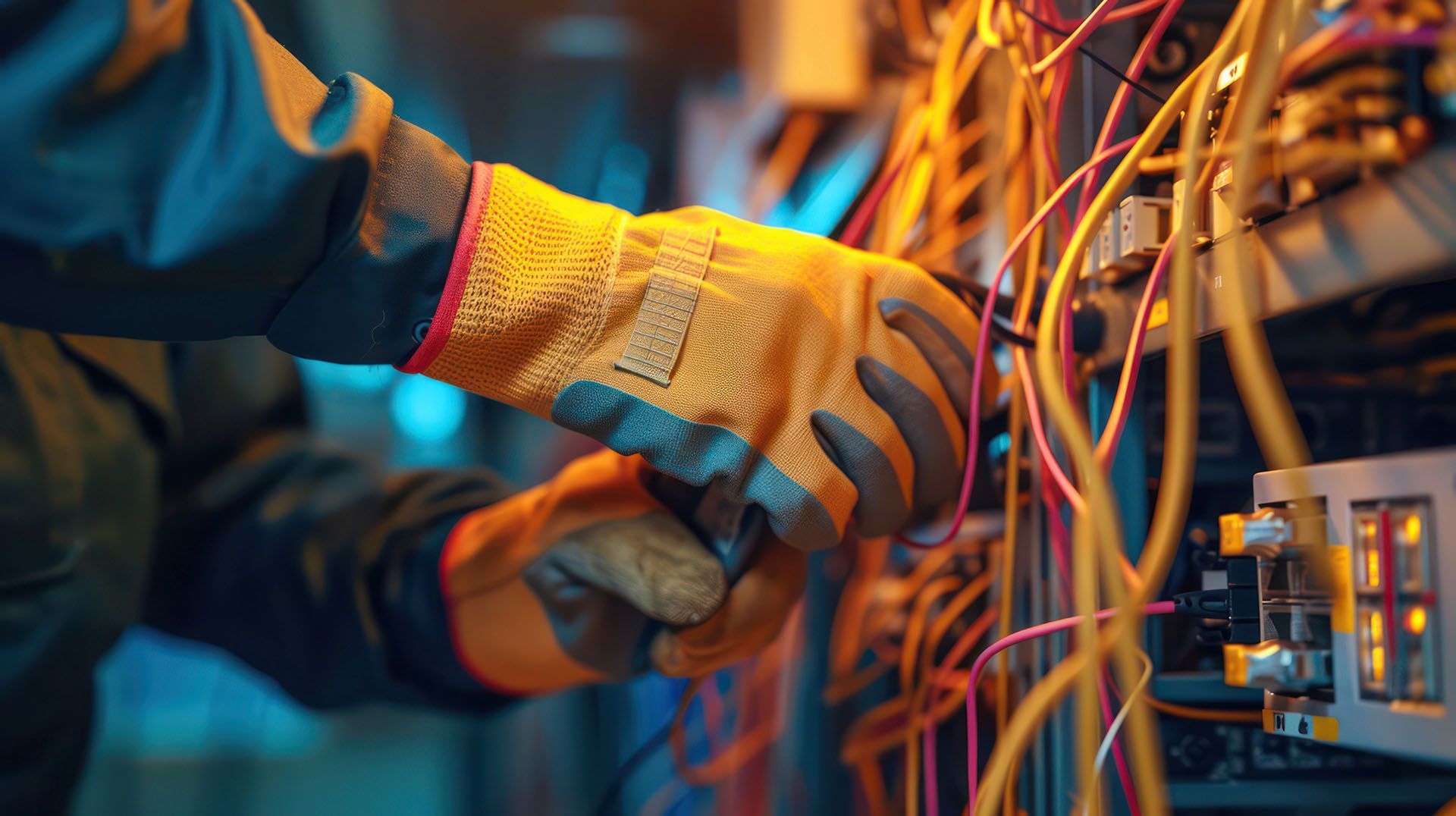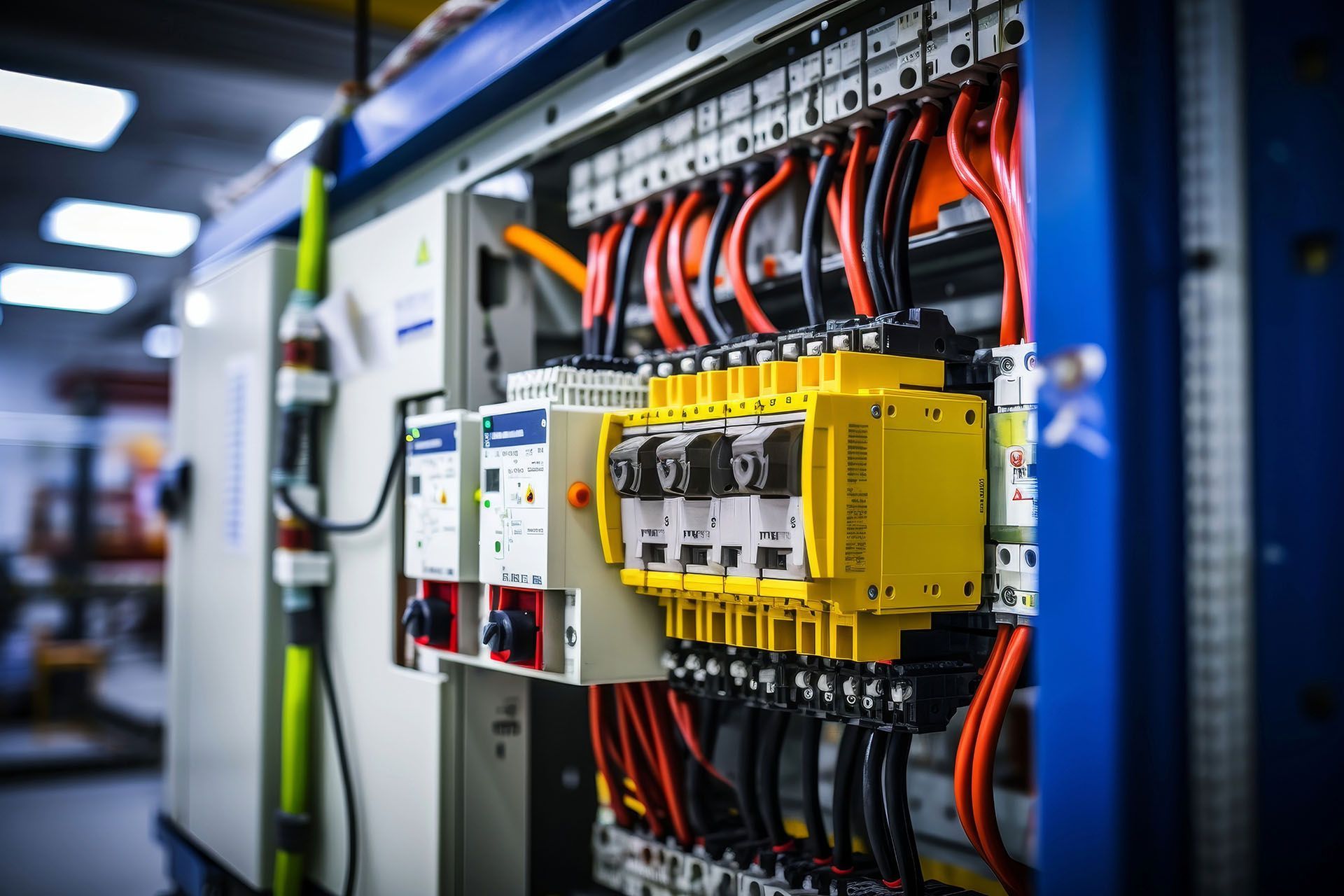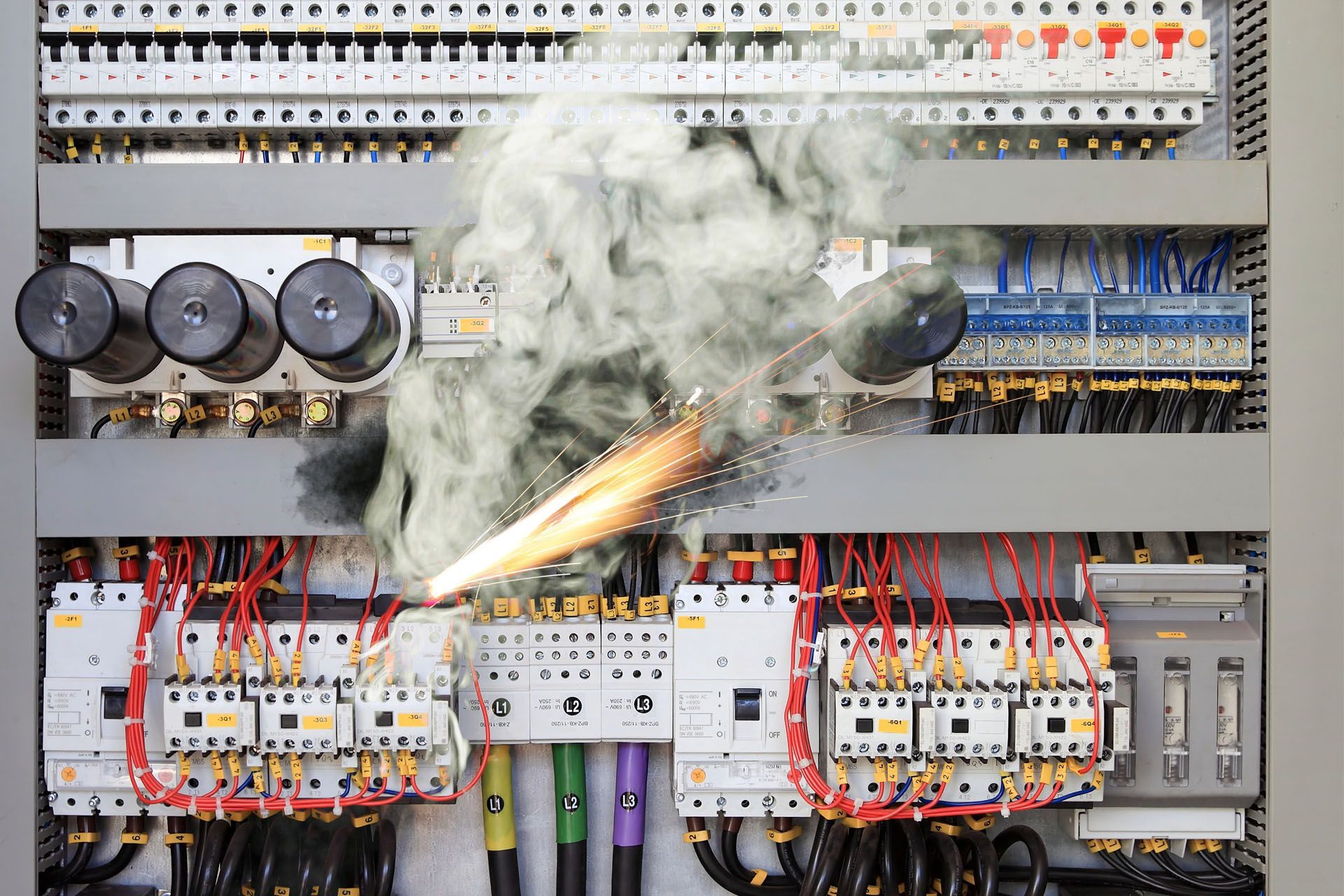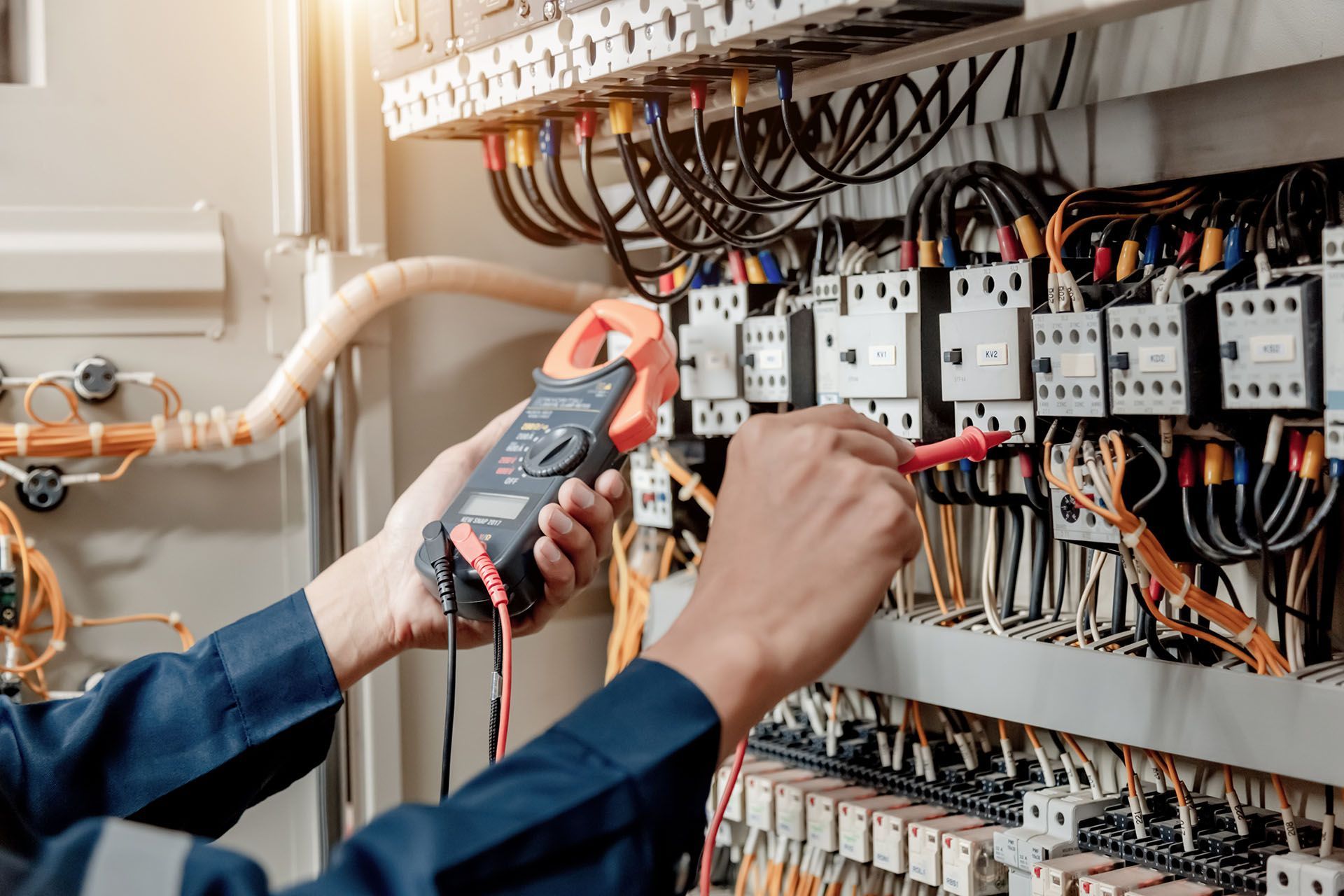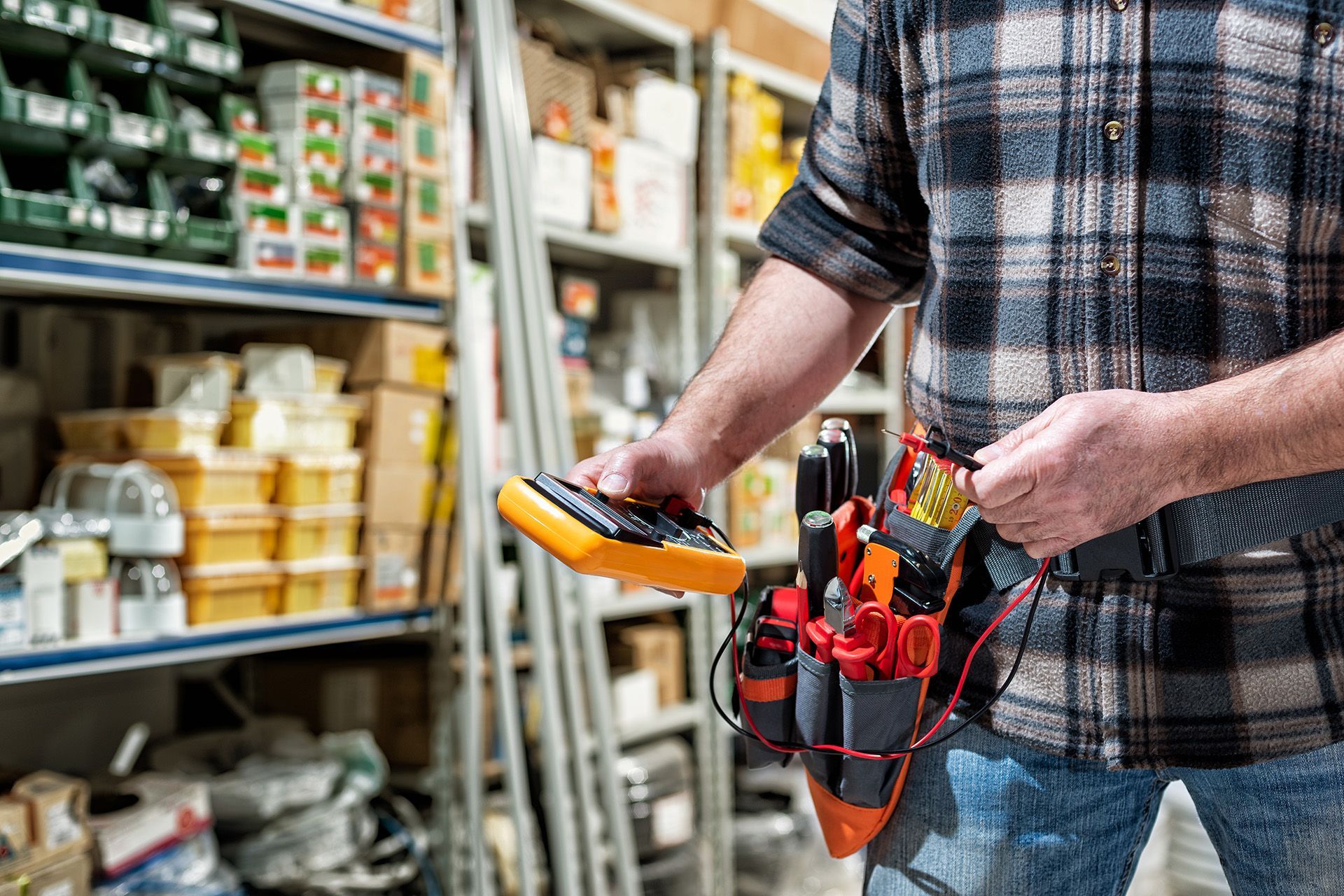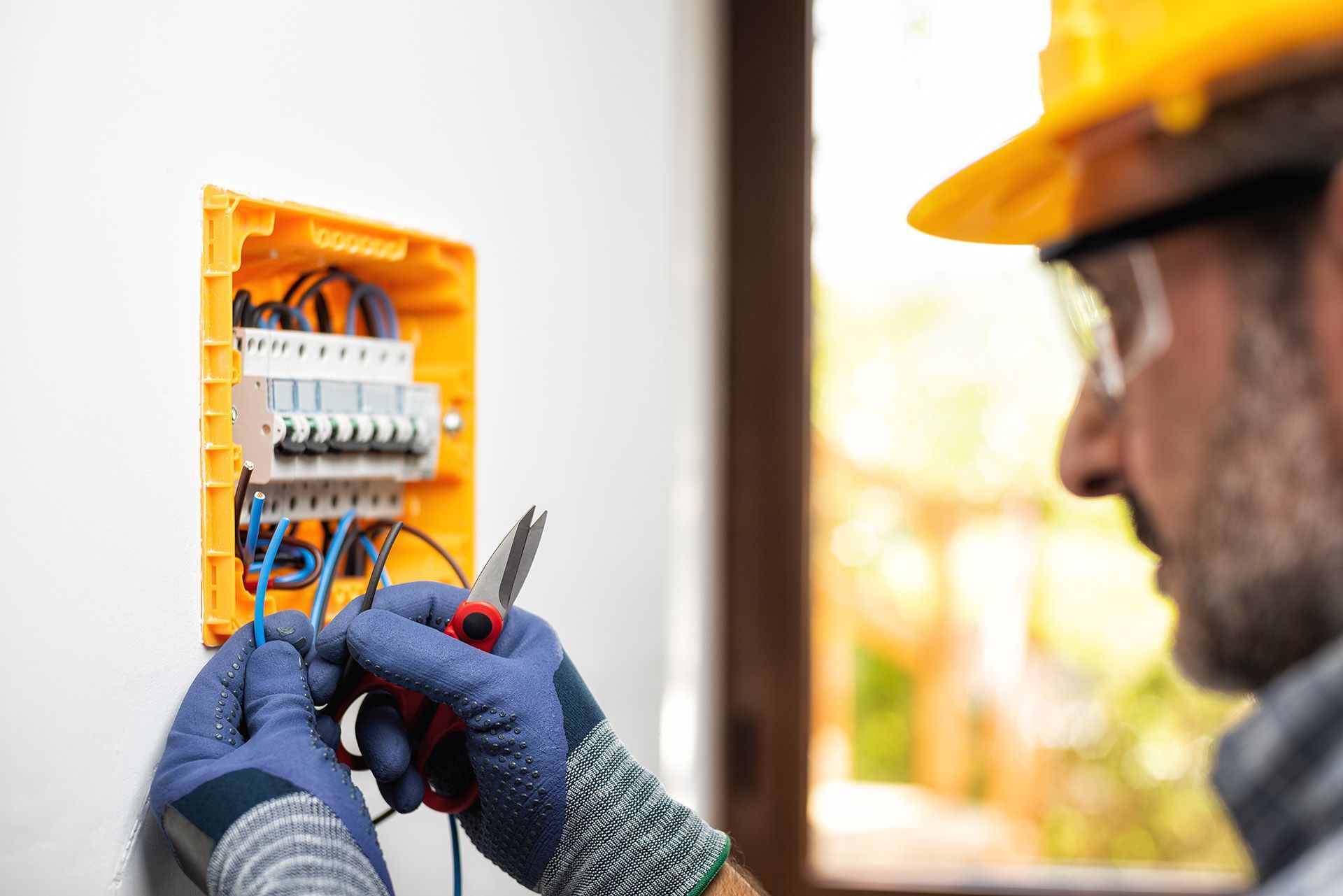Address: Unit 19, 54 Fairey Rd, South Windsor NSW 2756
Electrical Inspections: How Often Should Commercial Properties Get Checked?
Think about everything in your business that depends on electricity. The lights, the security systems, the equipment, the computers—without a reliable electrical system, everything grinds to a halt. But here’s the thing: electrical issues don’t always announce themselves with sparks and smoke. More often, they start small. A flickering light here, a tripped breaker there. Ignore them long enough, and those little warning signs can turn into costly downtime or serious safety risks.
That’s why regular electrical inspections aren’t just another compliance requirement. They’re a smart way to catch problems before they spiral, keep your business running smoothly, and make sure you’re not at risk of electrical failures or fire hazards.
So, how often should a commercial property undergo an electrical inspection? And what exactly happens during one? Let us take a look.
What Are the Main Types of Electrical Testing?
When providing electrical inspection services, licensed electricians don’t just take a quick look at your system — they assess the electrical installation in your property and perform a series of tests to ensure everything is working safely and efficiently. These tests help identify hidden faults, check compliance with Australian standards, and prevent future failures. So, what exactly do these tests involve?
1. Rough In Inspection for New or Renovated Electrical Systems
Before walls and ceilings are sealed in a newly constructed or renovated building, a rough in inspection must be conducted to check whether all wiring, circuits, and electrical components are properly installed. This ensures the system meets Australian safety standards before final connections and finishing touches are completed.
2. Testing Earthing and Grounding Systems
Proper earthing and grounding are essential for electrical safety. They provide a controlled path for excess electricity, helping to prevent shocks and reduce the risk of fires. During inspection services, electricians test whether the grounding system is intact and meets safety standards.
3. Inspecting the Condition of Cables, Wires, and Insulation
Electrical wiring deteriorates over time due to heat, humidity, and mechanical stress. A faulty electrical installation with damaged or frayed wires can cause short circuits and fires. Inspection services check for:
- Exposed or degraded insulation
- Worn-out wiring
- Signs of overheating or burning
4. Checking for Circuit Connection Issues and Potential Short Circuits
Loose or corroded electrical connections can lead to voltage drops, power loss, or sparks, increasing fire risks. Testing ensures that all circuit connections are secure, properly terminated, and free of defects.
5. Identifying Electrical Faults or Overloads
Commercial properties have high power demands, and overloaded circuits can lead to:
- Frequent power trips
- Overheating
- Premature wear on electrical components
Testing helps identify weak points in the system and prevent overloading issues.
6. Inspecting Safety Devices: RCDs, Safety Switches, and Circuit Breakers
Safety switches and Residual Current Devices (RCDs) protect people from electrical shocks by cutting power when faults are detected. Circuit breakers prevent electrical fires by stopping excess current flow. Electrical inspectors check if these devices are functioning correctly and compliant with Australian safety standards.
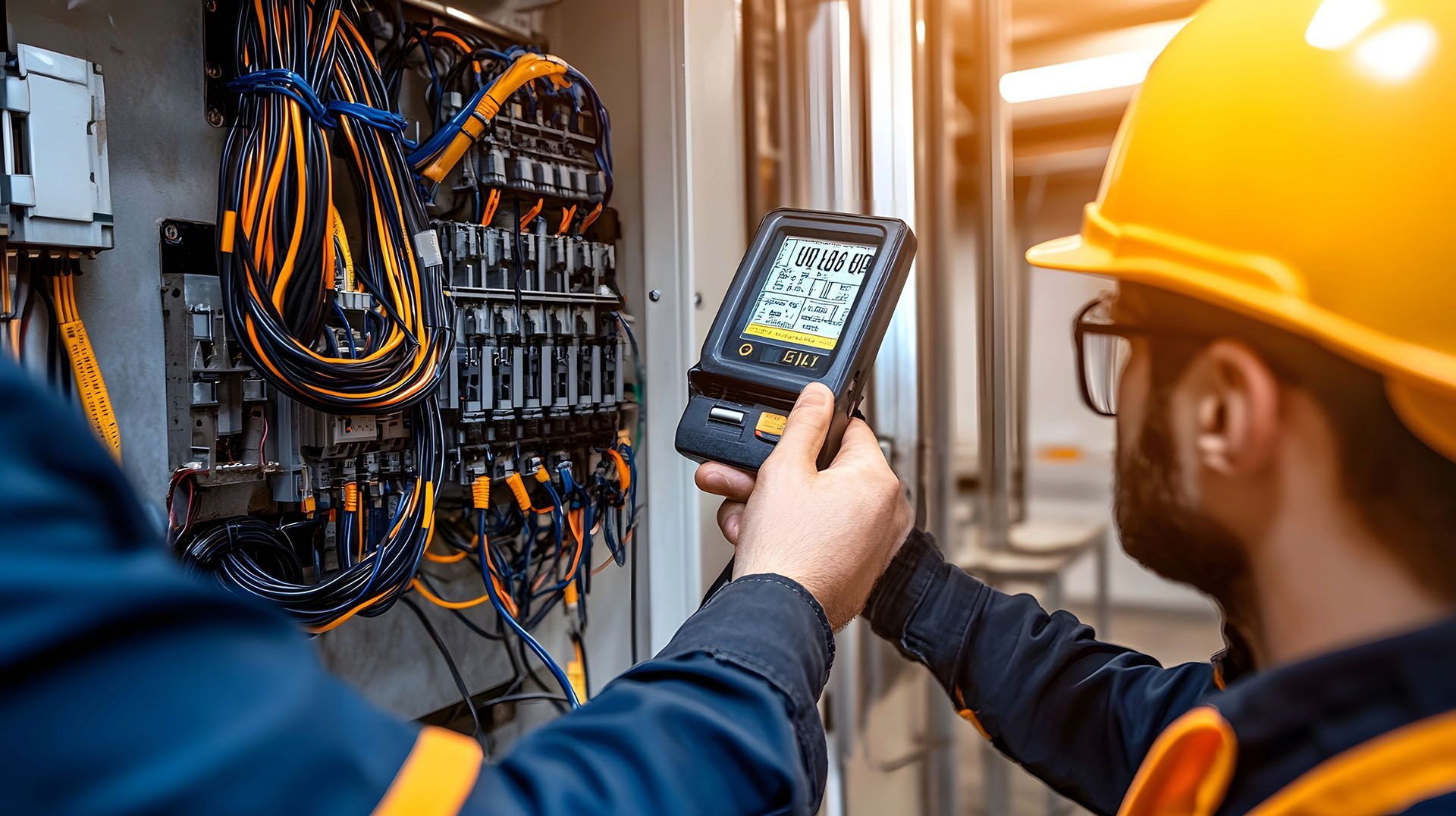
How Often Should Electrical Systems Be Inspected?
There’s no universal rule for electrical inspections, but certain guidelines help businesses stay on top of safety and compliance. Some industries require annual checks, while others can go longer.
1. General Commercial Properties: Annually or More Frequently
For offices, retail spaces, and similar commercial buildings, annual electrical inspections are recommended to stay compliant with safety regulations and identify potential issues before they become costly problems. A well-maintained electrical installation ensures safe and efficient operation, reducing the risk of unexpected failures.
However, properties with older wiring, high-energy demands, or frequent electrical issues may need more frequent assessments to prevent power failures and equipment damage. Businesses undergoing expansions or renovations should also schedule additional inspection services to verify that any new electrical installation meets safety standards and can handle the increased load.
2. High-Risk Industries: Annually or More Frequently
Certain industries require more frequent and intensive electrical inspections due to the high risks associated with their operations. In these settings, electrical systems are under constant strain, and failures can lead to serious safety hazards, operational shutdowns, or compliance violations.
Industries that require annual or even biannual electrical inspections include:
- Manufacturing & Warehouses – Continuous machinery use and high electrical loads cause faster wear on wiring and equipment.
- Hospitality & Commercial Kitchens – Heat, moisture, and heavy appliance use increase the risk of electrical faults.
- Healthcare Facilities – Hospitals and aged care homes rely on uninterrupted power for life-saving medical equipment.
- Construction Sites – Temporary electrical setups require regular testing to ensure they remain safe throughout a project.
Because these environments pose higher electrical risks, more frequent electrical inspections help prevent hazards such as overloading, faulty grounding, and system failures.
3. Emergency and Exit Lighting: Every 6 Months
Australian regulations require that emergency lighting systems be tested every six months to ensure they work during power failures.
4. Portable Electrical Equipment: Every 3–12 Months
Equipment that gets moved frequently (such as power tools, extension cords, and appliances) is more prone to wear and tear. Test and tag regulations require checks every 3–12 months, depending on the environment.
5. After Renovations, Electrical Upgrades, or Incidents
If a property undergoes major renovations, electrical upgrades, or experiences an electrical fault, an immediate inspection is necessary to verify that any electrical installation conducted meets safety and compliance standards.
What Is the Australian Standard for Electrical Testing?
In Australia, electrical testing is governed by several standards, each covering different aspects of inspection, verification, and safety compliance.
AS/NZS 3017:2022 – Electrical Installations – Verification by Inspection and Testing
This standard provides guidelines for verifying that low-voltage electrical installations comply with safety requirements before being put into service. It outlines testing procedures that electricians must follow during the final inspection phase of an electrical installation to make sure it is safe and ready for use.
AS/NZS 3000:2018 – The Wiring Rules
Also known as the Wiring Rules, AS/NZS 3000:2018 sets the design, construction, and compliance requirements for all electrical installations in Australia. These installation rules ensure that electrical systems are built and maintained to high safety standards, reducing the risk of faults, failures, and hazards in commercial properties.
AS/NZS 3760:2022 – In-Service Safety Testing of Electrical Equipment
For businesses that use portable appliances and equipment, AS/NZS 3760:2022 outlines the requirements for test and tag inspections. This applies to workplaces where electrical tools, cords, and appliances need regular testing for faults and safety compliance.
While property owners don’t need to understand the technical details of these standards, it’s essential to work with licensed electricians who adhere to them. This ensures your commercial property remains safe, compliant, and free from electrical hazards.
Why Are Regular Electrical Inspections Important?
Beyond just meeting legal requirements, regular electrical inspections provide tangible benefits for commercial properties:
1. Reducing Fire and Safety Hazards
Faulty electrical work and poorly maintained systems are among the leading causes of workplace fires. Electrical inspections detect issues before they become major risks that can harm employees, customers, or damage valuable assets.
2. Preventing Downtime and Costly Repairs
Electrical failures can bring a business to a standstill, disrupting operations and causing revenue losses. Regular checks ensure potential failures in your electrical installation or system are caught early, reducing the chances of disasters occurring.
3. Extending Equipment Lifespan
Overloaded or poorly maintained electrical systems put unnecessary strain on equipment, causing them to wear out faster. Electrical inspections optimise performance and help businesses avoid early replacements.
4. Ensuring Compliance with Australian Regulations
Electrical safety is heavily regulated in Australia, and non-compliance can lead to:
- Hefty fines
- Legal liabilities
- Increased insurance premiums
Regular electrical inspections ensure a business meets its legal obligations, reducing the risk of penalties.
5. Lowering Energy Costs
Damaged wiring, inefficient circuits, or outdated components such as power points and switchboards can waste electricity, driving up energy bills. Electrical inspections help identify inefficiencies and recommend upgrades that improve energy efficiency.
Final Thoughts
Nobody wants to deal with sudden power failures or unexpected repairs. Keeping up with electrical inspections means fewer surprises, lower risks, and a more reliable system for your business. Whether it’s an office, a factory, or a construction site, a well-maintained electrical setup keeps everything running the way it should.
So, how often should your commercial property be checked?
- General commercial properties: Annually or more frequently.
- High-risk industries: Annually or biannually
- Emergency lighting: Every 6 months
- Portable equipment: Every 3–12 months
- After renovations, upgrades, or incidents: Immediately
If it’s been a while since your last electrical inspection, now is the time to book one. Ronika’s licensed electricians in Western Sydney provide thorough electrical inspection services, compliance checks, and bespoke recommendations to help you meet all inspection and testing requirements, keeping your business safe, compliant, and operational.
In addition to inspections, we also offer electrical installation and maintenance services for new builds, renovations, and system upgrades. Whether you need a complete rewiring, additional power points, or routine system servicing, our team makes sure that every installation meets Australian safety standards and keeps your business running efficiently.
Need an electrical inspection in Western Sydney? Contact Ronika today.



